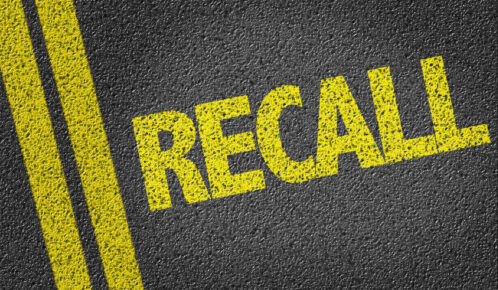If you’ve experienced kidney damage after taking Nexium, you may have grounds for a Nexium kidney damage lawsuit. Factors such as medical diagnosis, records of Nexium use, timeline of kidney issues, and consultation with a knowledgeable attorney are crucial in determining eligibility. Consulting a lawyer familiar with pharmaceutical litigation can provide clarity on your situation and guide you through the process of pursuing compensation for your injuries.
Table of Contents

A class action lawyer at Ankin Law can help you determine whether you have a Nexium lawsuit. Call 312-600-0000.
What Are the Side Effects of Nexium?
Nexium, a widely prescribed medication for the treatment of acid reflux and related conditions, has been the subject of growing concern due to its side effects, including kidney damage. While Nexium (esomeprazole) is effective in reducing stomach acid and providing relief for many patients, recent studies have raised questions about its safety profile, particularly regarding kidney health.
Is There a Link Between Nexium and Kidney Damage?
Several studies have suggested a link between long-term Nexium use and an increased risk of kidney damage. One such study found that the use of proton pump inhibitors (PPIs) like Nexium was associated with a higher risk of developing chronic kidney disease (CKD) and acute kidney injury (AKI). These findings have prompted concerns among healthcare professionals and patients alike, leading to further investigation into the safety of PPI medications.
The mechanism behind the link between Nexium and kidney damage is not entirely understood, but it is believed that prolonged exposure to PPIs may lead to changes in kidney function and structure, increasing the risk of kidney complications over time. While not everyone who takes Nexium will experience kidney problems, those with pre-existing kidney conditions or other risk factors may be more susceptible to adverse effects.
What Are the Long-Term Effects of Chronic Kidney Disease and AKI?
Chronic kidney disease (CKD) is a progressive condition characterized by the gradual loss of kidney function over time. Long-term effects of CKD can include increased risk of cardiovascular disease, hypertension, anemia, bone disease, and electrolyte imbalances. As CKD progresses, patients may experience symptoms such as fatigue, swelling, difficulty concentrating, and changes in urine output. Eventually, CKD may advance to end-stage renal disease (ESRD), requiring dialysis or kidney transplantation for survival.
Acute kidney injury (AKI), on the other hand, is a sudden and often reversible loss of kidney function that occurs over a short period. However, even after recovery from AKI, patients may still be at risk for long-term complications. These can include an increased risk of developing CKD, hypertension, cardiovascular disease, and mortality. Additionally, AKI survivors may experience persistent kidney damage, leading to decreased kidney function and an ongoing need for medical monitoring and management. It’s essential for individuals who have experienced AKI to undergo regular follow-up care to monitor kidney function and address complications promptly.
Are There Nexium Kidney Damage Lawsuits in Illinois?
In response to reports of kidney damage associated with Nexium and other PPI medications, individuals across the United States, including in Illinois, have filed lawsuits seeking compensation for their injuries. These lawsuits allege that the manufacturers of Nexium failed to adequately warn patients and healthcare providers about the potential risks of kidney damage associated with the drug.
If you or a loved one have experienced kidney problems after taking Nexium or another PPI medication, you may be eligible to file a lawsuit to pursue compensation for medical expenses, pain and suffering, and other damages. An experienced class action lawyer can help you understand your legal rights and options for seeking justice.
When to Consult a Lawyer
If you have been diagnosed with kidney damage or other kidney-related complications after taking Nexium, it is important to consult with a qualified attorney knowledgeable about pharmaceutical litigation. A class action lawyer can review your case, gather evidence, and determine whether you have grounds for a lawsuit against the manufacturer of Nexium.
It is especially crucial to seek legal guidance if you believe that your kidney problems were caused by Nexium, as there may be time limits for filing a lawsuit known as statutes of limitations. An attorney can ensure that your claim is filed within the appropriate timeframe to protect your rights and maximize your chances of receiving compensation for your injuries.
How to Determine if You Have a Nexium Lawsuit
To determine if you have a viable Nexium lawsuit, there are several factors to consider:
- Medical Diagnosis: Have you been diagnosed with kidney damage, chronic kidney disease, acute kidney injury, or another kidney-related condition after taking Nexium?
- Medical Records: Do you have medical records documenting your use of Nexium and kidney-related symptoms or complications?
- Timeline: Did your kidney problems develop while you were taking Nexium or shortly after discontinuing the medication?
- Other Risk Factors: Do you have any pre-existing kidney conditions or other risk factors that may have contributed to your kidney problems?
- Legal Consultation: Have you consulted with a knowledgeable attorney who can evaluate your case and advise you on the best course of action?
A lawyer can help you figure out how to join a class action lawsuit to recover damages.
How to Prove Liability in a Nexium Kidney Damage Lawsuit
In a pharmaceutical injury case based on negligence, the plaintiff must establish four key elements to prove the manufacturer or distributor of the pharmaceutical product acted negligently. These elements are:
- Duty of Care: The first element involves demonstrating that the defendant owed a duty of care to the plaintiff. In pharmaceutical injury cases, this duty arises from the manufacturer’s responsibility to produce safe and effective products and to provide adequate warnings about potential risks associated with the use of the medication.
- Breach of Duty: The plaintiff must show that the defendant breached the duty of care by failing to meet the required standard of care. This involves proving that the pharmaceutical company failed to adequately test the product for safety, failed to provide sufficient warnings or instructions for use, or engaged in misleading marketing practices regarding the medication’s risks and benefits.
- Causation: Causation requires demonstrating that the defendant’s breach of duty was the direct cause of the plaintiff’s injuries. In pharmaceutical injury cases, this typically involves establishing a causal link between the use of the medication and the specific harm suffered by the plaintiff, such as kidney damage, heart problems, or other adverse effects.
- Damages: Finally, the plaintiff must prove that he or she suffered actual damages as a result of the defendant’s negligence. This may include physical injuries, medical expenses, lost wages, pain and suffering, and other economic and non-economic losses incurred due to the pharmaceutical injury.
By satisfying all four elements of negligence, you can establish liability on the part of the pharmaceutical company and seek compensation for your injuries through a lawsuit.
What Damages Can I Recover in My Kidney Damage Lawsuit?
In a Nexium kidney damage lawsuit, plaintiffs may seek various damages to compensate them for the harm caused by the medication. These damages can include both economic and non-economic losses incurred as a result of the kidney damage or related complications. Common types of damages available in a Nexium kidney damage lawsuit include:
Medical Expenses
Compensation for past, current, and future medical expenses related to the diagnosis, treatment, and management of kidney damage or renal complications caused by Nexium is available. This may include costs associated with hospitalization, doctor visits, diagnostic tests, medications, surgeries, dialysis, and other necessary medical interventions.
Lost Wages and Loss of Earning Capacity
This includes reimbursement for income lost due to missed work, reduced work hours, or disability resulting from Nexium-related kidney damage. Plaintiffs may also seek compensation for the loss of future earning capacity if their ability to work or earn income is permanently impaired by their kidney injury.
Pain and Suffering
This accounts for the physical pain, discomfort, and emotional distress experienced as a result of kidney damage or related complications caused by Nexium. This includes compensation for both the physical pain and the mental anguish endured by the plaintiff, as well as loss of enjoyment of life or diminished quality of life resulting from their condition.
Loss of Consortium
This provides compensation for the impact of the plaintiff’s kidney damage on his or her relationship with a spouse or partner, including loss of companionship, support, affection, and intimacy. This type of damages may be sought by the plaintiff’s spouse or partner in addition to the plaintiff’s own claims for compensation.
Wrongful Death Damages
If Nexium-related kidney damage leads to the death of the plaintiff, surviving family members may pursue a wrongful death lawsuit seeking compensation for their losses. Damages in a wrongful death case may include funeral and burial expenses, loss of financial support, loss of companionship, and other related losses suffered by the surviving family members.
To determine what damages you can recover in a Nexium class action lawsuit, contact us at Ankin Law for a free case review. 312-600-0000.



